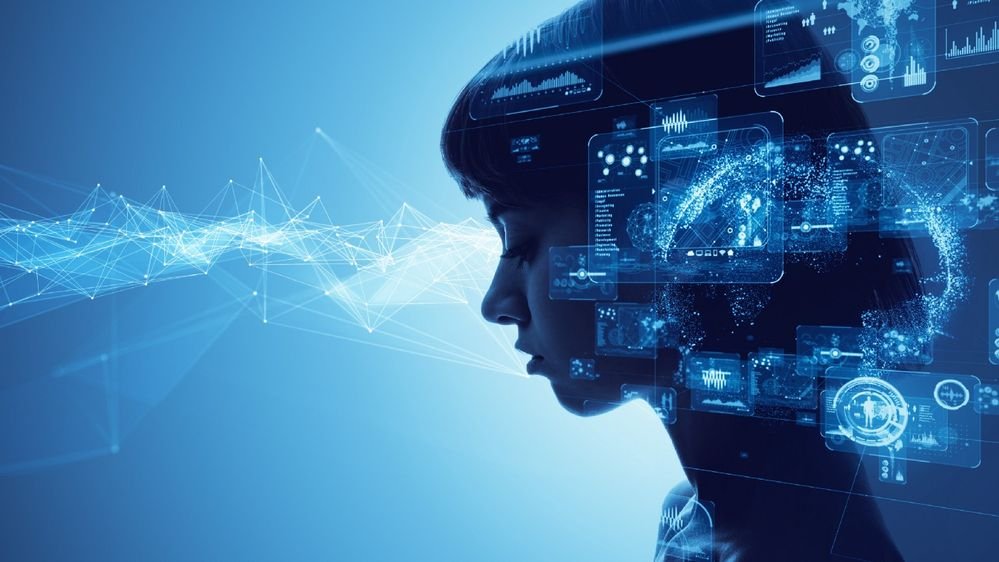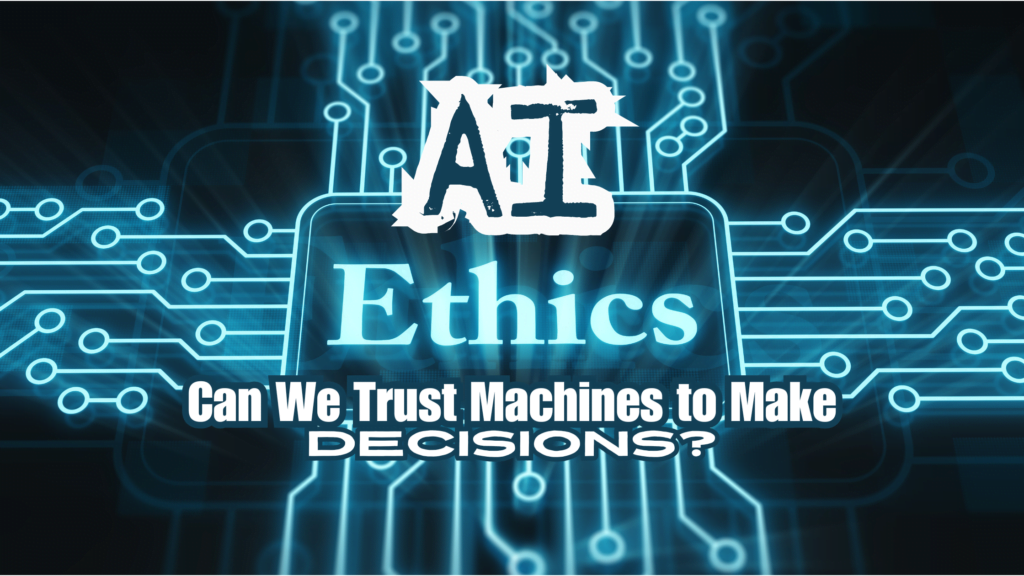In an era where AI ethics is becoming increasingly important, a critical question arises: Can we trust machines to make decisions? While the allure of delegating more and more responsibilities to AI is clear—efficiency, precision, and the promise of freeing ourselves from mundane tasks—the moral and philosophical implications of this shift are far from simple.
The Nature of Trust in Machines
Trusting machines to make decisions is fundamentally different from trusting humans. Human trust is built on relationships, shared values, and the predictability of behavior based on experience. Machines, on the other hand, operate based on algorithms—sequences of logical operations optimized to perform a specific task, often based on vast datasets. But can algorithms, no matter how sophisticated, truly earn our trust in the way humans do?

The question isn’t merely about functionality; it’s about accountability. When a machine makes a decision, who—or what—is responsible for the outcome? If an AI system makes an erroneous decision in a healthcare setting, leading to harm, can we hold the machine accountable? Or do we blame the programmers, the data, or the institution that deployed the AI?
This is where the ethical dilemma begins. Trust in machines must be evaluated not only through the lens of performance but also through the framework of moral responsibility. And as we continue to develop increasingly autonomous systems, the boundaries of that responsibility become blurry.
Machines, Bias, and Moral Judgment
A central ethical concern in trusting AI to make decisions is the potential for bias. Machines are often thought to be objective, free from the prejudices that plague human judgment. However, this assumption is deeply flawed. AI systems are trained on data, and that data is a reflection of the world—a world that is far from free of bias. From gender discrimination to racial profiling, AI systems have demonstrated that they are just as capable of perpetuating human prejudices as they are of making neutral, fact-based decisions.
In many cases, bias in AI decision-making is not overt but embedded within the layers of the algorithm. For instance, an AI might decide which applicants are most suited for a job, but if the data it was trained on reflects a history of discrimination against certain groups, the AI could unintentionally replicate and even exacerbate those biases. Can we trust a machine that cannot self-reflect or understand the moral implications of its decisions?
Trust, in this context, must be earned not through perfect functionality, but through the careful auditing of the data and ethical frameworks that guide machine learning processes. The question of trust, then, is less about the machine itself and more about the systems humans put in place to ensure fairness and justice in AI decision-making.
Autonomy and Human Oversight
There’s another layer to this debate: the balance between machine autonomy and human oversight. AI systems today are used in everything from driving cars to diagnosing diseases, and the decisions they make can have life-altering consequences. In many cases, these decisions are made with little to no human intervention, raising concerns about whether machines should be allowed to operate autonomously in critical domains.

Take autonomous weapons, for example. The idea of machines deciding who lives and who dies on the battlefield presents a profound ethical conundrum. Without human oversight, the potential for catastrophic error or abuse is enormous. But even in less dramatic contexts, such as self-driving cars, the potential for mistakes is real—and the consequences can be fatal.
Should humans always retain the final say, or can we trust machines to act autonomously? The answer is likely somewhere in between. There are many situations where human oversight is necessary, not only to ensure safety but to inject a layer of moral reasoning that machines, no matter how advanced, simply cannot replicate.
The Problem of AI Ethics Decision-Making
One of the most profound challenges in the ethics of AI is the question of moral reasoning. Machines operate on logic and data; they lack the emotional and philosophical context that humans bring to decision-making. When faced with complex moral dilemmas, can we really expect an algorithm to navigate these issues with the same nuance and care as a human?
Consider the classic trolley problem: A runaway trolley is heading toward five people, and you can pull a lever to divert it to a track where it will kill one person instead. This moral dilemma forces a decision between two undesirable outcomes. When humans face such dilemmas, their decisions are often informed by empathy, cultural values, and individual beliefs. Machines, however, are limited to cold calculus—they will simply follow the rules set by their programming, which might not account for the moral complexities that humans intuitively grasp.
In fields like medicine, law, and governance, decisions often involve weighing competing values—human dignity, justice, equity—and making trade-offs that no algorithm can truly comprehend. So, should we allow machines to make decisions in such ethically charged situations? Or must there always be a human in the loop to provide the moral reasoning that AI lacks?
A Pragmatic Approach
The answer to whether we should trust machines to make decisions lies not in blanket acceptance or rejection, but in a careful, case-by-case evaluation of where and when it is appropriate. We must recognize that while AI excels in certain domains, it is fundamentally limited in others.

Where precision and data-driven analysis are paramount—such as in diagnostics, logistics, or resource management—AI can significantly outperform human capabilities. But where moral judgment, empathy, and ethical trade-offs are required, humans must retain control.
In addition, robust frameworks for accountability, transparency, and bias mitigation are essential. We must ensure that AI systems are not black boxes but are subject to scrutiny, auditing, and ethical guidelines that align with human values.
Conclusion
The ethics of AI decision-making challenges us to rethink the nature of trust, responsibility, and moral reasoning in a world increasingly dominated by machines. While AI holds immense potential to improve efficiency and accuracy, we must remain cautious in how much autonomy we afford it. Machines, by their nature, cannot be trusted in the same way we trust humans. They lack the ability to comprehend the deeper moral and ethical implications of their actions.
As we move forward, the goal should not be to replace human decision-making with AI but to complement it—allowing machines to handle the technical details while humans retain the moral compass. Only by striking this balance can we harness the benefits of AI without sacrificing our humanity in the process.



